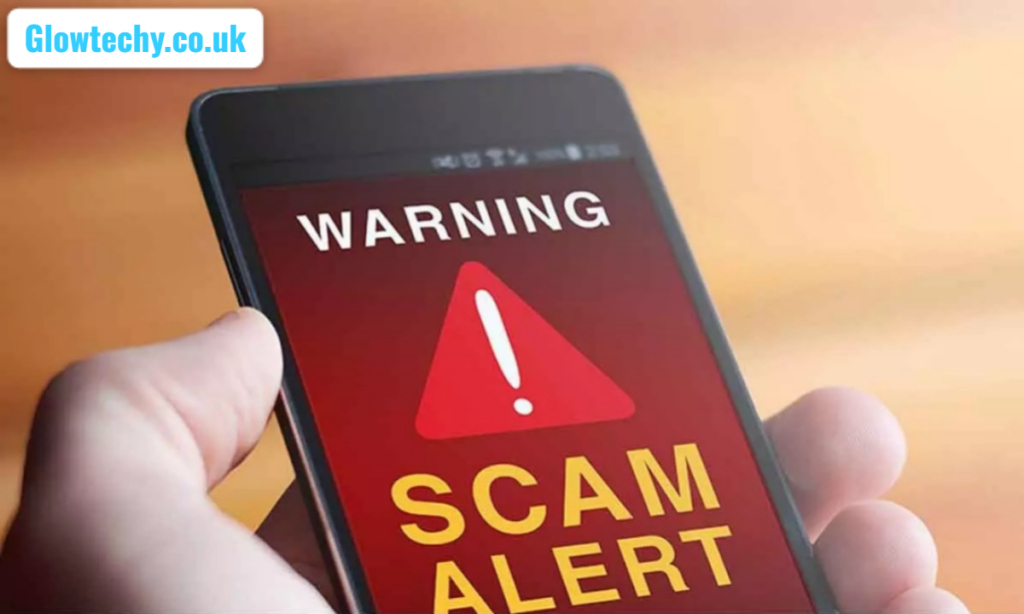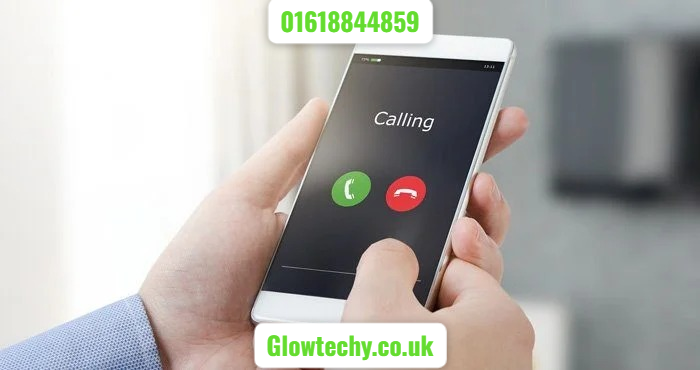
Telemarketing calls, robocalls, and scam attempts are an unfortunate part of life in the UK, and many people have experienced a spike in these types of calls. While many of these numbers can be easily dismissed, some persist and cause real anxiety. In 2025, a number of phone numbers have gained significant attention for being linked to spam, scams, or fraudulent activity. In this article, we will explore the top reported spam phone numbers in the UK 1623205017 , highlighting their characteristics and offering advice on how to protect yourself from such nuisance calls.
What Are Spam Calls and Why Are They Dangerous?
Spam phone calls, often associated with scam attempts, fraudulent marketing, or malicious activities, are unsolicited phone calls that can disrupt your day and, in some cases, lead to identity theft or financial loss. These calls can come from various sources, including telemarketers, scammers posing as government representatives, or fraudsters pretending to offer products or services.
The dangers of these calls extend beyond the irritation of constant interruptions. Some scams are sophisticated enough to trick people into sharing personal information or making payments under false pretenses. The impact of such scams can be severe, leading to financial losses, identity theft, or unauthorized access to sensitive accounts.
In the UK, numerous individuals report experiencing these types of calls, which is why tools like TrueCaller, WhoCalledMe, Ofcom, and others are essential in helping identify and report these numbers.
How to Identify Spam Numbers?
Before diving into the specifics of each number, it is important to recognize the common signs of spam or scam calls. Here are some typical indicators:
- Unfamiliar Area Codes: Many spam calls originate from area codes that do not match your local region or even your country.
- Automated Messages: Scammers often use recorded messages, claiming you have won a prize or that there’s an urgent problem with your account.
- Pressure Tactics: Scammers may pressure you to act immediately or provide personal information over the phone.
- No Caller ID or Unknown Number: Calls without a known or identifiable number may be suspicious.
By knowing these red flags, you can better protect yourself from falling victim to scams.
Now, let’s take a closer look at the top reported spam phone numbers in the UK for 2025.
Table: Top Reported Spam Phone Numbers in the UK (2025)
| Phone Number | Location | Type of Spam | Associated Scams |
| 2080582684 | London | Robocall / Telemarketing | PPI Claims, Loan Scams |
| 3316307362 | France | International Scam | Fake Bank Fraud, Investment Scam |
| 7520615358 | India | VoIP Scam | Fake Prizes, Fake Debt Collection |
| 1438989236 | UK | Automated Calls | Tax Scams, IRS Fraud |
| 1482293827 | UK | Unsolicited Marketing | Insurance Offers, Loan Scams |
| 2039940750 | UK | Scam Calls | Bank Impersonation, Financial Fraud |
| 7418370376 | US | International Scam | Fake Tech Support, Tech Scams |
| 1623205017 | UK | PPI Scam | PPI Claims, Legal Action Threats |
| 7701407206 | US | International Scam | Fake Amazon Fraud, Package Scam |
| 2045029385 | UK | Robocall / Marketing | Energy Bill Scams, PPI Claims |
Breakdown of Each Spam Number
1. 2080582684 – London (Robocall / Telemarketing)
This number has been widely reported in the UK, often associated with robocalls and unsolicited telemarketing. Callers typically claim that you are eligible for compensation for mis-sold products or services, particularly in relation to PPI (Payment Protection Insurance) claims.
Many have reported being harassed by repeated calls from this number, with the caller claiming to be from a legal firm or a government agency. If you receive a call from this number, it’s recommended to hang up immediately. You can block it or report it to Ofcom.
2. 3316307362 – France (International Scam)
Although based in France, this number has been flagged by UK residents as part of a series of international scams. Often, scammers using this number will claim to be from a fake bank, urging you to provide sensitive financial information.
Some scammers use this number to pretend that you’ve won an international lottery or prize, only to ask for an “administrative fee” before releasing the funds. Always verify any such claims with your bank directly.
3. 7520615358 – India (VoIP Scam)
This number is frequently used in VoIP (Voice over Internet Protocol) scam operations, often targeting vulnerable individuals with fake debt collection scams. The caller may falsely claim you owe money or have unpaid bills and threaten legal action if payment isn’t made immediately.
These scammers often demand payments via unconventional methods, such as gift cards or wire transfers. If you receive a call from this number, do not engage, and report it to the appropriate authorities.
4. 1438989236 – UK (Automated Calls)
Many people in the UK have reported receiving automated, robotic calls from this number. The call often claims that you owe back taxes or have an issue with your National Insurance number, and it pressures you to call a fake government helpline.
These are classic tax scams, where scammers impersonate HM Revenue and Customs (HMRC) to scare individuals into handing over money. If you receive such a call, do not respond, and instead contact HMRC directly.
5. 1482293827 – UK (Unsolicited Marketing)
This number is primarily associated with unsolicited marketing calls. While some might offer insurance or loans, the calls are intrusive and persistent. These types of marketing calls are a violation of the Telephone Preference Service (TPS), which allows people to opt out of unwanted marketing calls.
If you are receiving calls from this number, you can file a complaint with TPS or block the number.
6. 2039940750 – UK (Scam Calls)
This number has been flagged for its connection to fraudulent bank impersonation scams. Callers claiming to be from banks such as Barclays or HSBC use this number to convince people to share sensitive banking information.
In some cases, scammers may suggest that unusual activity has been noticed on your bank account and ask you to provide login details to “verify” your identity. Always verify with your bank using official contact details before sharing any sensitive information.
7. 7418370376 – US (International Scam)
While originating from the United States, this number is also reported in the UK. Scammers use it to pose as tech support agents from large tech companies like Microsoft or Apple, claiming they need to fix a security breach or virus on your computer.
These scammers may ask you to grant them remote access to your device, allowing them to steal personal data or install malicious software. Always contact the company directly using verified phone numbers if you receive such calls.
8. 1623205017 – UK (PPI Scam)
This number is linked to PPI claims, a persistent scam targeting individuals who may have been mis-sold payment protection insurance. Callers claim that you are entitled to compensation, but the process is usually a scam to obtain your personal information or charge you hidden fees.
If you receive a call from this number, avoid engaging and block it. You can also report the incident to the Financial Conduct Authority (FCA).
9. 7701407206 – US (International Scam)
Often reported by UK residents, this number is linked to Amazon scams. Scammers call claiming that there’s a problem with your Amazon account or that a fraudulent purchase has been made in your name. They may attempt to gain access to your account details or even trick you into paying for false charges.
If you get a call from this number, hang up immediately and check your Amazon account directly through the official website or app.
10. 2045029385 – UK (Robocall / Marketing)
Similar to the others, this number is associated with robocalls and telemarketing, often related to energy bill scams or PPI claims. Callers promise to help reduce your bills but may ask for sensitive personal information.
The best way to handle such calls is to ignore them, block the number, and report it to WhoCalledMe or Ofcom if necessary.
How to Protect Yourself from Spam Calls
Here are some important steps to help protect yourself from spam phone calls:
- Use Call Blockers: Install call-blocking apps like TrueCaller, which can help you identify spam calls and block them automatically.
- Register with TPS: The Telephone Preference Service allows you to opt out of unsolicited marketing calls.
- Don’t Share Personal Info: Never provide sensitive information over the phone unless you are sure of the caller’s identity.
- Report Spam Numbers: Use tools like WhoCalledMe and TrueCaller to report spam numbers.
- Trust Your Instincts: If a call feels suspicious, it likely is. Hang up and report the number.
Conclusion: Stay Vigilant Against Spam Calls
Spam and scam calls continue to be a significant issue for UK residents in 2025, but with the right tools and knowledge, you can protect yourself. Recognizing the signs of spam and utilizing resources like TrueCaller, WhoCalledMe, and Ofcom can help you identify and report these numbers. Always be cautious when receiving unsolicited calls and avoid sharing personal information unless you’re certain the call is legitimate. Stay vigilant, and don’t let scammers get the best of you!
Frequently Asked Questions
1. What should I do if I receive a call from one of these numbers?
If you receive a call from one of the numbers listed above, it’s recommended to hang up immediately and block the number. You can report it to WhoCalledMe or Ofcom.
2. How can I avoid spam calls in the future?
You can avoid spam calls by registering your number with TPS, using call-blocking apps, and being cautious about sharing your number online.
3. Are all calls from unknown numbers spam?
Not all calls from unknown numbers are spam, but it’s important to be cautious and verify the caller’s identity if you’re unsure.
Also Read This: 1216303064 Spam Call Warning Alert




